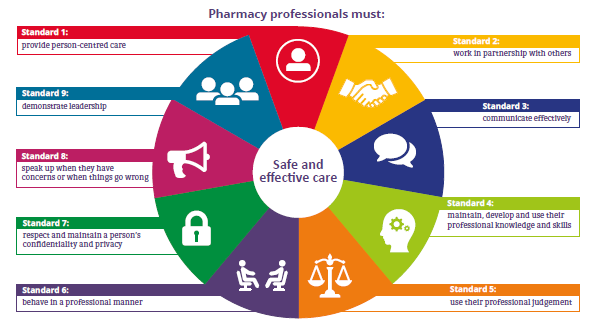Pharmacy in the UK has undergone great change over the past 10 years. Increasingly, pharmacy roles appear in places they would not have appeared traditionally, such as general practice and public health. And pharmacy’s contribution in supporting the health and well-being of the general public from the tried-and-tested community pharmacy setting has broadened. Not many pharmacists practicing today would say their workplace is the same as where they initially trained.
Alongside the changing role of pharmacists and pharmacy technicians, there has also been a shift in how pharmacy professionals are regulated. Reform, coming to fruition in 2010, led to formation of the independent regulator for Great Britain known as the General Pharmaceutical Council (GPhC).1 Its job: to secure and maintain trust and safety in pharmacy as a whole.
Regulators in the past have typically focused on just one group of their registrants – those against whom a concern has been raised. But that approach ignored the positive impacts that professions and regulators can have through other means.
In 2017, the GPhC launched new standards for pharmacy professionals, crafted through extensive public and professional engagement, to embody in nine simple statements the core of what it means to be a pharmacy professional (Figure 1).2 These standards are the same regardless of where someone works or what they do in their work. Moreover, the standards are outcome focused rather than a list of rules to follow. And they are the basis of the trust that members of the public have with the professions.

Figure 1. Standards for pharmacy professionals in Great Britain.
Having standards alone, though, is not enough in the public mind. The public has an expectation that health professionals are in some way periodically tested against what it means to be a professional. In 2018, following the standards, the council introduced revalidation for pharmacy professionals.3 On an annual basis, all pharmacists and pharmacy technicians in Great Britain must provide their regulator with records of their continuing professional development, where at least two entries must be planned learning activities, a peer discussion, and a reflective account based on the standards for pharmacy professionals. And every year, some of these records are selected (through targeting and at random) to be reviewed by experts. In addition, the GPhC has put together a framework for revalidation that sets out its expectations of pharmacy professionals.4 Revalidation is meant to demonstrate to the public that members of the professions are reflecting on their practice and learning for the benefit of the people using their services. Revalidation demonstrates, in the eyes of the public, that trust is well placed.
Revalidation for pharmacy professionals is now in its second year. The GPhC is continuing to roll this out while considering how it works to continuously improve on it.